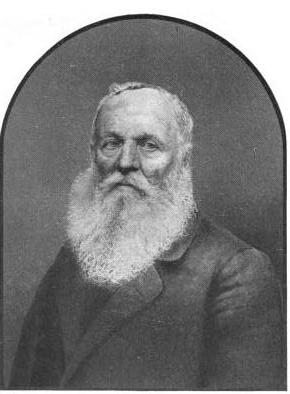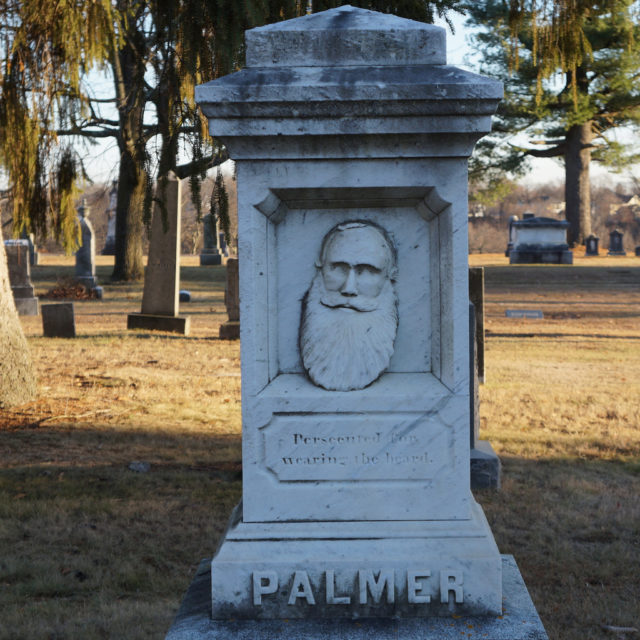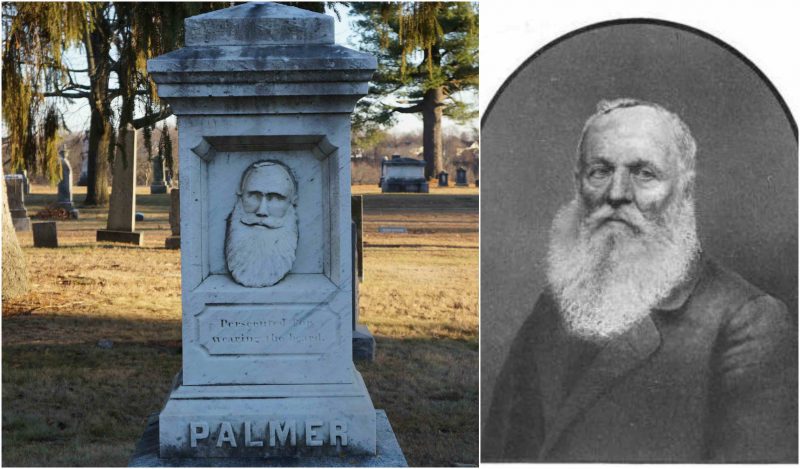With the advent of the “modern day hipster” we have been facing with a lot of weird and unconventional trends, but as cynism is the most common weapon of the modern society, these trends are unmercifully shamed on the global platform we call Social Media.
For instance, “the hipster beard” has truly and utterly overtaken the western world and, annoyed by this facial hair trend, the social media has done a fair share of shaming with the “Meme” revolution.
Well, people from the bygone era knew nothing about cynism and were downright furious when someone didn’t respect the social norms and had the courage to do something “unique,” like a sporting a beard in a time where nobody else did. Beards had gone out of fashion after 1720 in the United States, and men who had facial hair were deemed lunatics, heretics, and dirty eccentrics with a lack of personal hygiene.
Joseph Palmer, a veteran of the War of 1812 and farmer from NoTown, a village on the outskirts Fitchburg, Massachusetts was by no means a typical man.
Influenced by a bearded itinerant evangelist, he knew as a child; Palmer began sporting a long beard in 1820.
As beard at the time was very unconventional, let alone offensive, Palmer, dubbed “The Old Jew” by the locals, was considered frowzy and eccentric.
Despite being regularly harassed and questioned about his facial hair, Palmer was assertive and insisted on wearing a beard.

When a prominent minister from Fitchburg once tried to persuade him “Palmer, why don’t you shave and not go around looking like the devil?” the bearded farmer replied: “Mr. Trask, are you not mistaken in your comparison of personages? I have never seen a picture of the ruler of the sulfurous regions with much of a beard, but if I remember correctly, Jesus wore a beard, not unlike mine.”
The locals were so annoyed by Palmer’s beard that one day in May 1830, a group of four men armed with razors and scissors attacked Palmer in an attempt to shave him.
Being a husky man, Palmer, fortunately, fended off the attackers by using his jackknife and wounding two of the assailants in the legs.
Palmer was not a favorite among the local officials as well, so he was charged with “unprovoked assault” and had to pay ten dollars in fines and nearly forty dollars in court fees, as well as a seven hundred dollar bond that resulted from his sentence for the crime of defending himself. .
Disturbed by this obvious injustice, Palmer refused to pay the fines and was thrown into the Worcester County Jail for a little over one year.
While in prison, Palmer kept a detailed journal of his fifteen moths behind the bars. According to his diary records, Prison time for Palmer and for his fellow prisoners was a 19th-century version of “Shawshank Redemption” except there wasn’t a guy who can get things.
Palmer in the diary, describes the sadistic jailers and his own steadfastness in opposing the efforts of society to strip him of his unconventional habits and opinions.
During his first few weeks behind bars, Palmers was dangerously sick. Later on, he was beaten nearly to death by the jailers, starved for days, placed in solitary confinement for several months and bullied by his jail mates who also tried to shave his beard.

As you might have guessed, Palmer was not the kind of a man who got easily scared and he made life nearly as difficult for the officials who threw him in jail as they made it for him.
Palmer sent a constant stream of letters to the Sheriff of Worcester Country, Calvin Willard, complaining of the poor conditions in the jail.
To prove the lack of food, Palmer sent a package containing every morsel of food the jailers had given him per day. Consequently, the jailers treated Palmer even worse, throwing him in solitary confinement, or “the hole” if you will, for three months.
Throughout his time in prison, Palmer was defending his right of speech and insisted that he was innocent, so if he paid the fine he would be admitting his own guilt.
Palmer’s case began to bother the county authorities, who were aware that his jail term was far exceeding his “crime” and to avoid embarrassment sent several committees to the jail to convince him to pay the fine.
They even offered him to waive the seven hundred dollar bond, if he would pay the fine and court fees.
But that deal was far from acceptable to Palmer, who told the committee: “If I ain’t [sic] a safe person to have my Liberty I ought not to go out. And I am willing to stay in confinement til [sic] I am.”
Palmer was so assertive in his decision and unyielding that it came to the point where the judge who had originally fined him came to Worcester prison and practically begged him to relent.
The judge even brought a letter from Palmer’s 80-years old mother, pleading with him to come home. ( seriously judge, not cool).
So, Palmer did what every normal man who gets a letter from his mom urging him to leave jail would do, he paid the fine and left prison.
Palmer’s case became widely known as he sent letters to the Worchester Spy, who were more than happy to publish this odd story. Palmer was regularly mocked by the crowds. Prison time reinforced Palmer’s interest in political and religious reform.
At the time of his death in 1873, beards became very fashionable in the United States. His grave marker bears a portrait of him bearded with the inscription “Persecuted for Wearing the Beard.”
